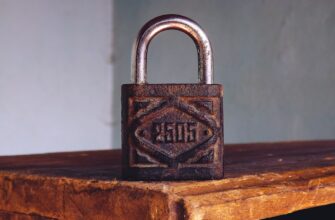- Why Securing Your Crypto Wallet Matters
- Top 10 Tips to Secure Your Crypto Wallet
- Common Crypto Wallet Threats
- FAQ: Frequently Asked Questions About Crypto Wallet Security
- What should I do if my crypto wallet is compromised?
- How can I tell if my wallet is secure?
- Is it safe to use a software wallet?
- Can I secure my crypto wallet with just a password?
- What is a paper wallet?
Why Securing Your Crypto Wallet Matters
Cryptocurrency has become a popular investment and transaction method, but it also comes with significant risks. A compromised crypto wallet can lead to the loss of valuable assets, identity theft, and financial fraud. According to a 2025 report by Chainalysis, over $15 billion in crypto was stolen in 2024, highlighting the urgent need for robust security measures.
Top 10 Tips to Secure Your Crypto Wallet
- Use a Hardware Wallet: Hardware wallets like Ledger or Trezor are the most secure option. They store private keys offline, making them immune to online attacks.
- Enable Two-Factor Authentication (2FA): Always activate 2FA on your wallet and exchange accounts. Use apps like Google Authenticator or Authy for added security.
- Use Strong Passwords: Create unique, complex passwords for your wallet. Avoid common words or patterns that can be easily guessed.
- Keep Software Updated: Regularly update your wallet software and operating system to patch vulnerabilities. Outdated software is a common entry point for hackers.
- Backup Your Wallet: Store backups in secure, offline locations. Use a paper wallet or a safe, encrypted drive to protect your private keys.
- Be Cautious of Phishing Scams: Never click on suspicious links or open attachments from unknown sources. Verify the legitimacy of any request for your private keys.
- Use a Secure Network: Avoid public Wi-Fi when accessing your wallet. Use a trusted, encrypted network to prevent man-in-the-middle attacks.
- Limit Wallet Usage: Only use one wallet for each purpose (e.g., trading, staking, everyday transactions). This reduces the risk of multiple accounts being compromised.
- Monitor Transactions: Regularly check your wallet for unauthorized activity. Use blockchain explorers like Etherscan or Blockchain.com to track transactions in real time.
- Use Cold Storage for Large Balances: Store the majority of your crypto in cold storage (offline wallets) to minimize exposure to online threats.
Common Crypto Wallet Threats
Hackers use various methods to compromise crypto wallets, including:
- Phishing Attacks: Fake websites or emails that trick users into revealing private keys.
- Malware Infections: Malicious software that steals private keys or encrypts files to demand ransom.
- Brute Force Attacks: Automated attempts to guess passwords or private keys through trial and error.
- 51% Attacks: A scenario where a group controls more than 50% of a blockchain’s mining power to manipulate transactions.
- Smart Contract Exploits: Vulnerabilities in decentralized applications (DApps) that allow hackers to siphon funds.
FAQ: Frequently Asked Questions About Crypto Wallet Security
What should I do if my crypto wallet is compromised?
If your wallet is hacked, immediately stop using it and report the incident to the exchange or platform. Contact your wallet provider for guidance on recovering funds. Avoid sharing private keys or login details with anyone.
How can I tell if my wallet is secure?
A secure wallet will have strong encryption, regular updates, and a trusted provider. Check for security certifications like ISO 27001 or industry-standard audits. Avoid wallets with poor reviews or unverified developers.
Is it safe to use a software wallet?
Software wallets are generally safe if used with a hardware wallet for backups. However, they are more vulnerable to online attacks than hardware wallets. Always use a hardware wallet for storing large amounts of cryptocurrency.
Can I secure my crypto wallet with just a password?
No. A strong password is necessary, but it’s not sufficient on its own. Use a hardware wallet or two-factor authentication to add an extra layer of security. Private keys should never be shared or stored online.
What is a paper wallet?
A paper wallet is a physical document that stores your private keys and public address. It’s a secure method for long-term storage, but it requires careful handling to prevent damage or loss.








